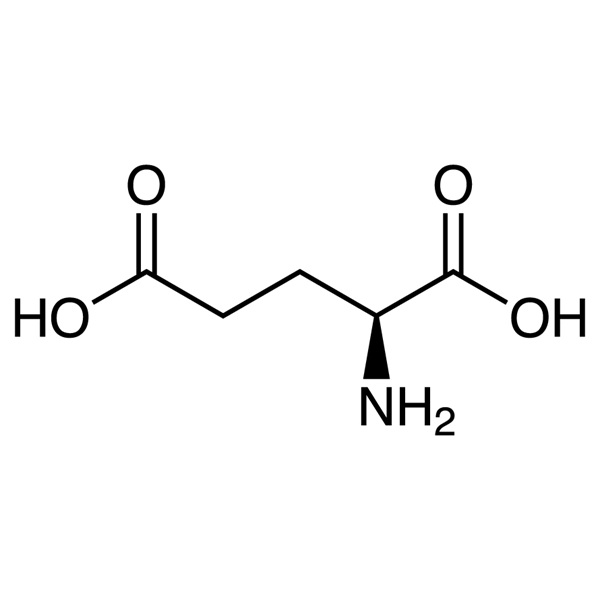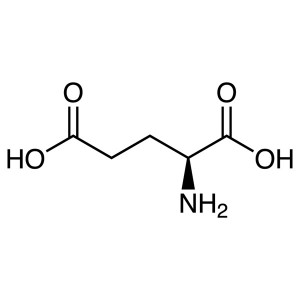L-Glutamic Acid CAS 56-86-0 (H-Glu-OH) Assay 98.5~100.5% Factory High Quality
Shanghai Ruifu Chemical Co., Ltd. is the leading manufacturer and supplier of L-Glutamic Acid (H-Glu-OH; L-Glu; Abbreviated Glu or E) (CAS: 56-86-0) with high quality, production capacity 30000 tons per year. As one of the largest amino acids suppliers in China, Ruifu Chemical manufactures qualified amino acids derivatives up to international standards, such as AJI, USP, EP, and FCC standard. We can provide COA, worldwide delivery, small and bulk quantities available. If you are interested in L-Glutamic Acid, Please contact: alvin@ruifuchem.com
| Chemical Name | L-Glutamic Acid |
| Synonyms | H-Glu-OH; L-Glu; Abbreviated Glu or E; L-(+)-Glutamic Acid; Laevo-Glutamic Acid; (S)-2-Aminopentanedioic Acid; L-2-Aminoglutaric Acid; (2S)-2-Aminopentanedioic Acid; (S)-(+)-Glutamic Acid; L-α-Aminoglutaric Acid; α-Glutamic Acid |
| Stock Status | In Stock, Production Capacity 30000 Tons per Year |
| CAS Number | 56-86-0 |
| Molecular Formula | C5H9NO4 |
| Molecular Weight | 147.13 |
| Melting Point | 205℃(dec.) (lit.) |
| Density | 1.54 g/cm3 at 20℃ |
| Solubility | Freely Soluble in Formic Acid. Slightly Soluble in Water. Practically Insoluble in Ethanol and in Ether. Dissolves in Dilute Hydrochloric Acid and in Dilute Nitric Acid |
| Solubility in Dilute HCl | Almost Transparency |
| Storage Temp. | Sealed in Dry, Store at Room Temperature |
| COA & MSDS | Available |
| Classification | Amino Acid Derivatives |
| Brand | Ruifu Chemical |
| Hazard Codes | Xi | RTECS | LZ9700000 |
| Risk Statements | 36/37/38 | F | 10 |
| Safety Statements | 24/25-36-26 | TSCA | Yes |
| WGK Germany | 2 | HS Code | 2922421000 |
| Items | Inspection Standards | Results |
| Appearance | White Crystals or Crystalline Powder. Slightly Characteristic Taste and Acid Taste | Conforms |
| Identification | Infrared Absorption Spectrum | Conforms |
| Specific Rotation [α]20/D | +31.5° to +32.4°(C=10, 2mol/L HCl) |
+31.9° |
| State of Solution | Clear and Colorless | Conforms |
| Transmittance | ≥98.0% | 98.5% |
| Chloride (Cl) | ≤0.020% | 0.016% |
| Sulfate (SO4) | ≤0.020% | 0.012% |
| Ammonium (NH4) | ≤0.020% | 0.010% |
| Iron (Fe) | ≤10ppm | 5ppm |
| Heavy Metals (Pb) | ≤10ppm | 6ppm |
| Arsenic (As2O3) | ≤1.0ppm | 0.6ppm |
| Other Amino Acids | Chromatographically Not Detectable | Conforms |
| Loss on Drying | ≤0.10% | 0.08% |
| Residue on Ignition (as Sulfated) | ≤0.10% | 0.05% |
| Assay | 98.5 to 100.5% (Titration: Anhydrous Basis) | 99.7% |
| pH Test | 3.0 to 3.5 (1.0g in 100ml of H2O) | 3.2 |
| Origin | From Non-Animal Source | Conforms |
| Residual Solvents | Conforms | Conforms |
| Conclusion | Accords with the Standard of AJI97; USP39 | |
| Shelf Life | 24 Months From Manufacture Date if Stored Properly | |
| Main Uses | Food Additives; Pharmaceuticals; Nutrition Supplements; etc. | |
Transmittance of Solution
Take this product l. After adding 2mol/L hydrochloric acid solution (20ml) to be dissolved, measure the transmittance at the wavelength of 430nm by UV-visible spectrophotometry (General rule 0401), and the transmittance shall not be less than 98.0%.
Chloride
Take 0.30g of this product and check it according to law (General rule 0801). Compared with the control solution made of 6.0ml of standard sodium chloride solution, it should not be more concentrated (0.02%).
Sulfate
Take 0.50g of this product, add 2ml of dilute hydrochloric acid and 5ml of water, shake to dissolve, check according to law (General rule 0802), and compare with the control solution made of standard potassium sulfate solution, no more concentrated (0.02%).
Ammonium Salt
Take 0.10g of this product and check it according to law (General rule 0808). Compared with the control solution made of 0.02% of standard ammonium chloride solution, it shall not be deeper ().
Other Amino Acids
Take this product, add 0.5mol/L hydrochloric acid solution to dissolve and dilute to prepare a solution containing about 10 mg per 1ml as a test solution; Take 1ml for precision measurement, in a 0.5 measuring flask, dilute to the scale with mol/L hydrochloric acid solution, shake well, and use as a control solution, A 0.5mol/L hydrochloric acid solution was added, dissolved and diluted to prepare a solution containing about 10 mg of glutamic acid and MG of aspartic acid per 1ml, respectively, as a system-suitable solution. According to the thin layer chromatography (General 0502) test, draw 5ul of each of the above three solutions, respectively, on the same silica gel G thin layer plate, with n-butanol-water-glacial acetic acid (2:1:1) to develop, spread, dry, spray with ninhydrin in acetone solution (1-50), heat at 80°C until spots appear, and immediately inspect. The control solution should show a clear spot, and the system applicable solution should show two completely separated spots. If the test solution shows impurity spots, the color should not be deeper (0.5%) than the main spot of the control solution.
Loss on Drying
Take this product, dry to constant weight at 105℃, weight loss shall not exceed 0.5% (General rule 0831).
Residue on Ignition (as Sulfated)
Take l.0g of this product and check it according to law (General rule 0841). The residue left shall not exceed 0.1%.
Iron Salt
Take 2.0g of this product, add 6mL of dilute hydrochloric acid and an appropriate amount of water, heat to dissolve, cool, add water to 25ml, and check according to law (General rule 0807), it should not be deeper (0.0005%) than the control solution made of standard iron solution.
Heavy Metals
The residue left under the item of taking the ignition residue shall not contain more than 10 parts per million of heavy metal when examined by law (General Principles 0821, Law II).
Arsenic Salt
Take 2.0g of this product, add 5ml of hydrochloric acid and 23ml of water to dissolve, check according to law (General Principles 0822 first law), should comply with the provisions (0.0001%).
Pyrogen
This product is diluted with sodium chloride injection to make a solution containing 20mg per lml, heated to dissolve, let cool to 37°C, and check according to law (General rule 1142), dose according to the rabbit body weight per lkg injection 10ml, should comply with the provisions. (For injection)
56-86-0 - Content determination
Take this product about 0.25g, precision weighing, add boiling water 50ml to dissolve, let cool, add 5 drops of bromothymol blue indicator solution, and use sodium hydroxide titration solution (0.1 mol/L) titration to the solution from yellow to blue-green. Each 1 ml of sodium hydroxide titration solution (0.1 mol/L) corresponds to 14.71mg of C5H9N04.
Package: Fluorinated Bottle, 25kg/bag, 25kg/Cardboard Drum, or according to customer's requirement.
Storage Condition: Store in sealed containers at cool, dry and ventilated warehouse away from incompatible substances. Protect from light and moisture. Stable under recommended storage conditions.
How to Purchase? Please contact Dr. Alvin Huang: sales@ruifuchem.com or alvin@ruifuchem.com
15 Years Experience? We have more than 15 years of experience in the manufacture and export of a wide range of high quality pharmaceutical intermediates or fine chemicals.
Main Markets? Sell to domestic market, North America, Europe, India, Korea, Japanese, Australia, etc.
Advantages? Superior quality, affordable price, professional services and technical support, fast delivery.
Quality Assurance? Strict quality control system. Professional equipment for analysis include NMR, LC-MS, GC, HPLC, ICP-MS, UV, IR, OR, K.F, ROI, LOD, MP, Clarity, Solubility, Microbial limit test, etc.
Samples? Most products provide free samples for quality evaluation, shipping cost should be paid by customers.
Factory Audit? Factory audit welcome. Please make an appointment in advance.
MOQ? No MOQ. Small order is acceptable.
Delivery Time? If within stock, three days delivery guaranteed.
Transportation? By Express (FedEx, DHL), by Air, by Sea.
Documents? After sales service: COA, MOA, ROS, MSDS, etc. can be provided.
Custom Synthesis? Can provide custom synthesis services to best fit your research needs.
Payment Terms? Proforma invoice will be sent first after confirmation of order, enclosed our bank information. Payment by T/T (Telex Transfer), PayPal, Western Union, etc.
L-Glutamic Acid (H-Glu-OH, Abbreviated Glu or E) (CAS: 56-86-0) is one of the 20 common α-amino acids constituting the protein. It acts as the precursor of biosynthesis of glutamine, proline and arginine.
Function of Food Grade Additive L-Glutamic Acid
1. Glutamic Acid as an important nutrient for human growth, not only has a special physiological role, but also has a unique feature in the food industry.
2. Glutamic Acid as a flavor enhancer can be used to enhance the flavor of the beverage and food.
3. Glutamic Acid can be used as a nutritional drug. Glutamic acid for hair restorer, can be absorbed by the scalp, prevent hair loss and hair newborn. Glutamic acid to the skin, the treatment of wrinkles is curative.
4. Glutamic Acid can be used in medicine, because glutamic acid is one of the amino acids of protein. Although it is not essential amino acids the human body, it can be used as carbon and nitrogen nutrients involved in the body's metabolism. Glutamic acid has a higher nutritional value.
Application of Food Grade Additive Bulk CAS 56-86-0 99% Purity Amino Acid L-Glutamic Acid Powder
1. L-Glutamic Acid is mainly used in the production of monosodium glutamate, spices, salt and used as a generation agent, nutritional supplement and biochemical reagents, etc.
2. L-Glutamic Acid itself can be used as a drug, to participate in the brain protein and sugar metabolism, promote oxidation process, the goods in the body combined with ammonia into non-toxic l-glutamine, decreased blood ammonia, alleviate the symptoms of hepatic coma. Mainly used in the treatment of hepatic coma and severe liver function not entire, but curative effect is not very satisfied; In combination with antiepileptic drugs to fair treatment by small attacks and psychomotor epilepsy seizures. Racemic drugs used in the production of glutamate, also used as a biochemical reagents, etc.
Limited Use: FAO/WHO (1984): for convenient foods and broth soups, 10g/kg. FEMA (mg/kg): beverages, bakery products, meat, sausage meat, broth, milk and dairy products, sauces, cereals, are 400mg/kg. FDA, §172.320 (2000): As nutritional supplements, limited to 12.4% (by weight of total protein in the food).
-
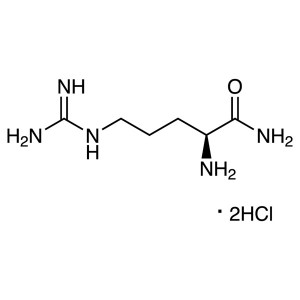
L-Argininamide Dihydrochloride CAS 14975-30-5 H...
-
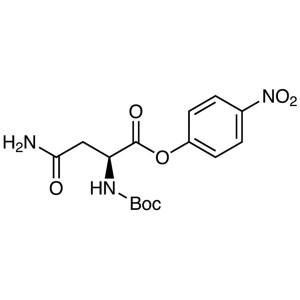
Boc-Asn-ONp CAS 4587-33-1 Purity >98.0% (HPLC)
-
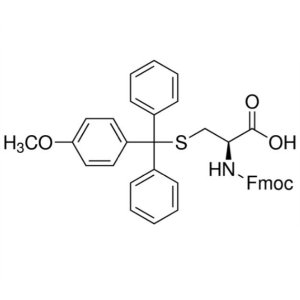
Fmoc-Cys(MMt)-OH CAS 177582-21-7 Assay >99.0% (...
-
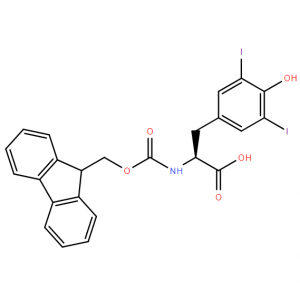
Fmoc-Tyr(3,5-I2)-OH CAS 103213-31-6 Assay >98.0...
-
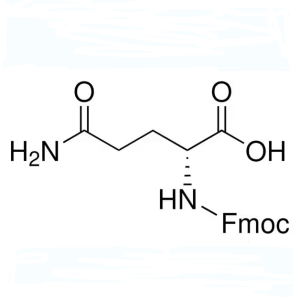
Fmoc-D-Gln-OH CAS 112898-00-7 Assay ≥98.0% (HPLC)
-
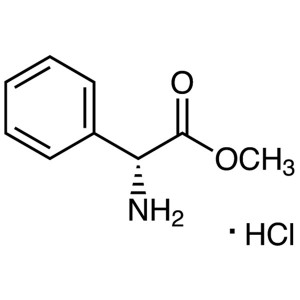
D-(-)-2-Phenylglycine Methyl Ester Hydrochlorid...

